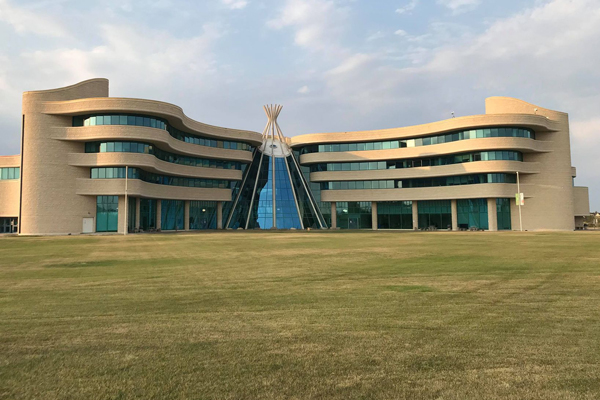Education Interns face additional learning with COVID-19
- Morgan Esperance | October 03, 2020
The common student jitters about starting a teaching internship are magnified for Tim Merasty, who has diabetes.
Merasty, who is in his third and final year of Indigenous Education at First Nations University of Canada (FNUniv), has mixed feelings.
“I’m not looking forward to it, but I also am looking forward to just finishing, it’s going to be so weird,” said Merasty.
“I don’t want to be at risk, but I also want to finish my program on time, so if we have to do it then I will do it, but I don’t want to do it if I don’t have to,” he said.
Merasty is diabetic and could be considered high risk, depending partly on how well he manages the condition.
Having experience with Zoom already, he would be comfortable teaching that way. If being in the classroom is required, following protocols will be important to him.
“I will be wearing a mask and keeping my distance as much as I can and just telling them (to) keep washing their hands, wearing their mask. That’s pretty much all you can do right now,” he said.
With some elementary and high school students working from home and a certain number of students allowed in the classrooms, internships may be different, said Dustin Brass, Undergraduate Program Coordinator for Indigenous Education at FNUniv.
“They're going to be lacking some of the experience but... they'll gain some living in the realities that they're in now,” Brass said.
For the fall semester, full internships, like Merasty’s, are continuing, but pre-internships have been cancelled, Brass said.
The decision was made based on the amount of time interns will spend at the schools.
Pre-interns go out sporadically so the school is not their sole bubble, increasing the possibility of exposure for interns and students.
Those who are doing full internships will be there from the beginning of the term and will follow their school’s protocols, he said.
Prior to COVID-19, students taught lessons to their peers. Now Brass will encourage micro-lessons with interns’ family members or other people within their personal bubbles. Getting practice using protocols ahead of time is important for developing safe teaching habits, he said.
“This is a very human faculty and so that affects our interactions and how do we work with people physically as educators,” Brass said.

